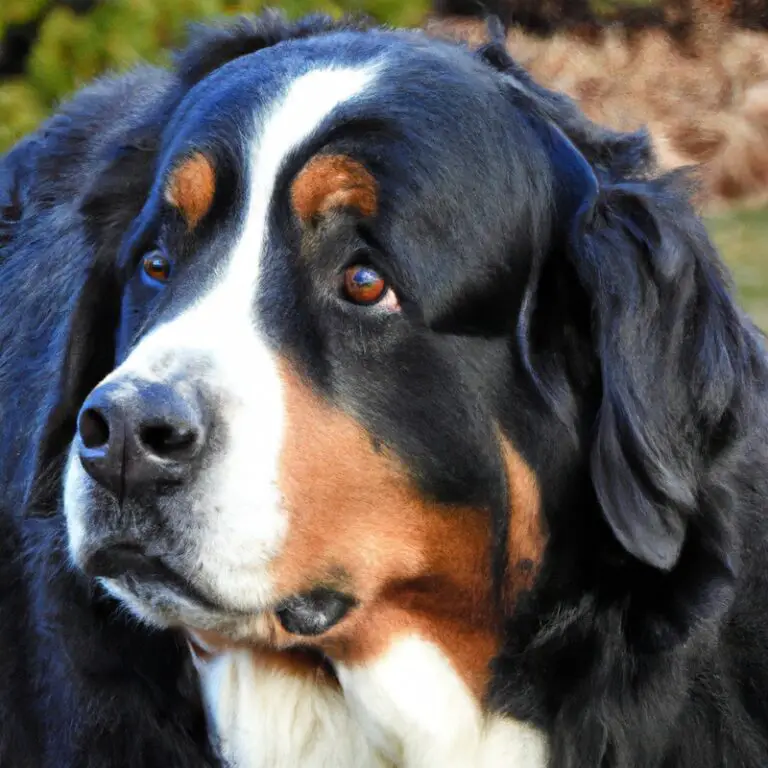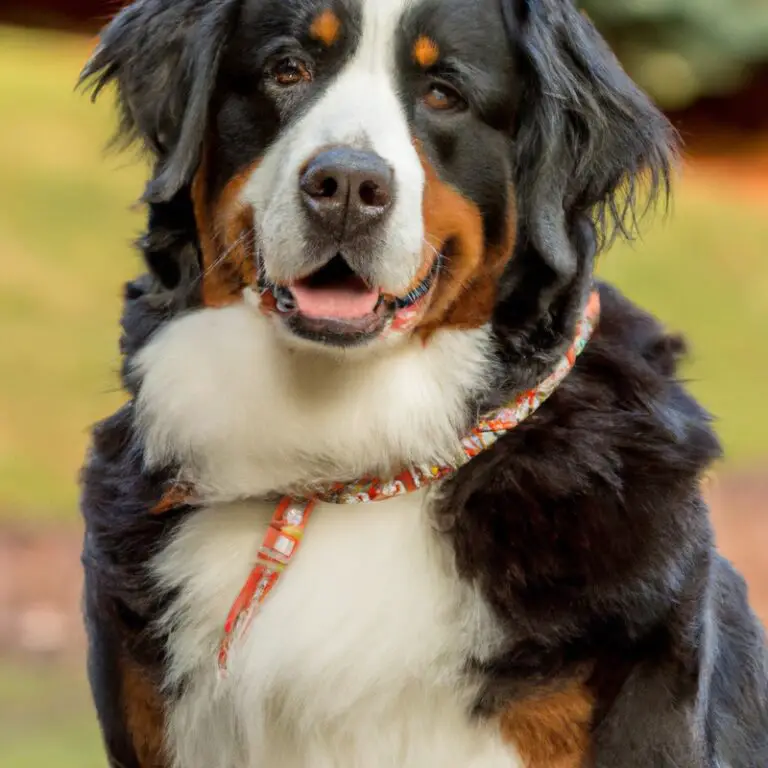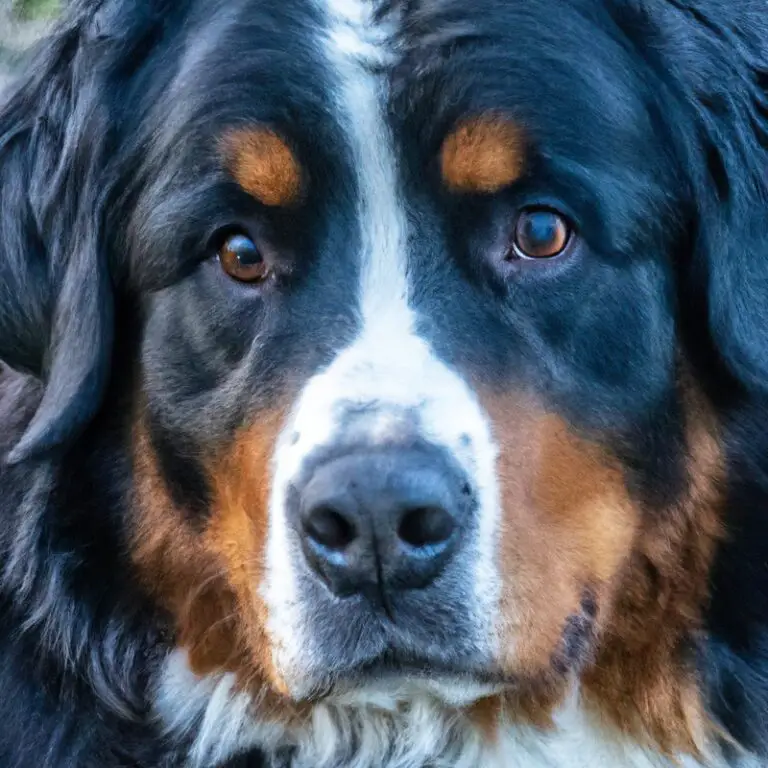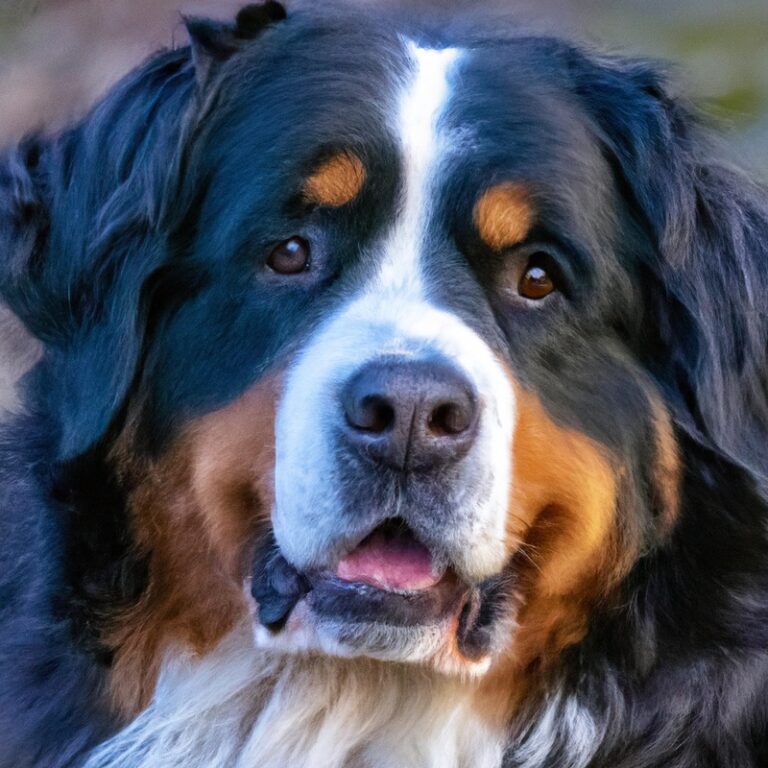What Are The Best Strategies For Preventing Separation Anxiety In Bernese Mountain Dogs?
Key Takeaways:
- Establish a consistent routine and environment to provide a sense of security for your Bernese Mountain Dog.
- Gradually increase the duration of time spent apart to help your dog adapt to being alone.
- Use positive reinforcement techniques to reward calm behavior and gradually desensitize your dog to separations.
- Provide mental and physical stimulation to prevent boredom and anxiety in your Bernese Mountain Dog.
Do you ever feel a pang of guilt when you leave your Bernese Mountain Dog alone, only to come back to anxious behaviors and telltale signs of separation anxiety? Don’t worry, you’re not alone.
Separation anxiety is a common issue among these gentle giants, but the good news is that there are effective strategies to prevent it.
As an experienced dog trainer and avid Bernese Mountain Dog enthusiast, I’ve discovered some tried and tested techniques that can help build a strong foundation, create a positive environment, and employ calming interventions. Join me as we delve into the best strategies for preventing separation anxiety in Bernese Mountain Dogs.
| Strategies | Description |
| 1. Early socialization | Expose the Bernese Mountain Dog to new people, places, and experiences from a young age to help prevent anxiety. |
| 2. Crate training | Teach the dog to associate the crate with a safe and comfortable space, providing a sense of security and reducing anxiety when left alone. |
| 3. Gradual departure and arrival | Avoid sudden departures or arrivals, instead practicing gradual desensitization by gradually increasing the time spent away from the dog. |
| 4. Positive reinforcement | Use rewards and praise to reinforce positive behaviors, helping the dog feel more confident and secure. |
| 5. Interactive toys and puzzles | Provide mental stimulation and distraction through interactive toys and puzzles, keeping the dog engaged and reducing separation anxiety. |
| 6. Desensitization training | Gradually expose the dog to situations that trigger anxiety, such as short periods of separation, to help them build tolerance. |
| 7. Consistent routines | Establish a consistent daily routine to create a sense of predictability and stability, reducing anxiety in Bernese Mountain Dogs. |
| 8. Medication (if necessary) | In severe cases, consult a veterinarian who may recommend medication or other therapeutic interventions to help manage separation anxiety. |
Understanding Separation Anxiety in Bernese Mountain Dogs
What is Separation Anxiety?
Separation anxiety is a condition where dogs experience distress when they are left alone or separated from their owners or guardians.
It is a common behavioral issue in dogs, including Bernese Mountain Dogs.
Dogs with separation anxiety may exhibit various signs such as excessive barking, destructive behavior, accidents indoors, and pacing.
This condition can be stressful for both the dog and the owner, but with proper training and support, it can be managed effectively.
Understanding the signs and seeking professional advice is important to address separation anxiety in dogs.
Signs and Symptoms of Separation Anxiety in Bernese Mountain Dogs
Separation anxiety in Bernese Mountain Dogs can manifest in various signs and symptoms. These may include excessive barking, destructive chewing, urinating or defecating in the house, pacing, drooling, and attempts to escape.
Some dogs may also show signs of distress when their owners are getting ready to leave or exhibit clingy behavior when their owners are present.
It’s important to recognize these signs early on and seek professional help to address the underlying anxiety.
Causes of Separation Anxiety in Bernese Mountain Dogs
Separation anxiety in Bernese Mountain Dogs can occur due to various reasons.
Here are some common causes:
- Lack of socialization: Dogs that haven’t been exposed to different people, animals, and environments may develop anxiety when left alone.
- Traumatic experiences: Previous negative experiences, like being abandoned or confined for long periods, can contribute to separation anxiety.
- Change in routine: Dogs are creatures of habit, so significant changes such as moving to a new home, a new family member, or a change in the owner’s work schedule may trigger anxiety.
- Overdependence on the owner: Dogs that become overly attached to their owners may struggle when left alone.
- Breed predisposition: Bernese Mountain Dogs are known to be sensitive and dependent on their families, making them more prone to developing separation anxiety.
Understanding these causes can help you identify potential triggers and take appropriate steps to prevent or manage separation anxiety in your Bernese Mountain Dog.
Building a Strong Foundation
Early Socialization and Training
Early socialization and training is essential for preventing separation anxiety in Bernese Mountain Dogs. Start socializing your puppy from a young age, exposing them to different people, animals, and environments.
This will help them become more confident and adaptable.
Additionally, teach your dog basic obedience commands and provide mental stimulation through puzzle toys and interactive games. Consistency and positive reinforcement are key when training your Bernese Mountain Dog.
Gradual Alone Time Introductions
To prevent separation anxiety in Bernese Mountain Dogs, gradual alone time introductions are key. Start by leaving your dog alone for short periods, gradually increasing the duration over time.
Create a positive association by offering treats or toys before you leave.
Practice desensitization by simulating departure cues without actually leaving. Consider using puzzle toys to keep them entertained.
Avoid making a big fuss when you leave or return.
With patience and consistency, your Bernese Mountain Dog will become more comfortable with being alone.
Crate Training as a Safe Space
Crate training can be an effective strategy for creating a safe space for your Bernese Mountain Dog. It provides them with a sense of security and can help prevent separation anxiety.
When crate training, make sure to choose the appropriate size crate for your dog and gradually introduce them to it with positive reinforcement.
Use comfy bedding and a few toys to make it inviting. Avoid using the crate as a form of punishment and never leave your dog in the crate for excessively long periods of time.
Creating a Positive Environment
Providing Mental Stimulation and Physical Exercise
To prevent separation anxiety in Bernese Mountain Dogs, it’s important to provide them with both mental stimulation and physical exercise. Engage their minds with interactive toys and puzzle games that challenge their problem-solving skills.
Additionally, set aside time each day for vigorous physical activities, such as walks, runs, or playing fetch.
Providing a combination of mental and physical stimulation will help keep your Bernese Mountain Dog happy, healthy, and mentally satisfied.
Using Interactive Toys and Treats
Using interactive toys and treats can be a helpful strategy in preventing separation anxiety in Bernese Mountain Dogs.
- Interactive toys, such as puzzle toys or treat dispensers, can provide mental stimulation and keep your dog engaged while you’re away.
- Kong toys stuffed with treats or frozen peanut butter can keep them occupied for longer periods.
- Consider using interactive feeding toys that make mealtime more challenging and engaging.
- Rotate the toys and treats to keep your dog’s interest.
- Make sure to choose safe and durable toys that are appropriate for your dog’s size and chewing habits.
Establishing a Consistent Routine
Establishing a consistent routine is key to preventing separation anxiety in Bernese Mountain Dogs. Stick to a regular schedule for feeding, exercise, and bathroom breaks.
Make sure to provide plenty of mental and physical stimulation before you leave.
Leave interactive toys and puzzles to keep them occupied. Gradually increase the time you spend away to help them adjust.
Avoid making a big fuss when you leave or return.
Practice short absences to build their confidence. With a consistent routine, your Bernese Mountain Dog will feel more secure and less likely to develop separation anxiety.
Calming Techniques and Interventions
Desensitization and Counterconditioning
Desensitization and counterconditioning are highly effective techniques for managing separation anxiety in Bernese Mountain Dogs.
Desensitization involves gradually exposing your dog to the triggers of their anxiety, such as your departure cues, in a controlled and gradual manner.
This helps them become less reactive over time.
Counterconditioning, on the other hand, involves pairing those triggers with positive experiences, such as treats or toys, to create a positive association.
By consistently and patiently using these techniques, you can help your Bernese Mountain Dog overcome their separation anxiety and feel more comfortable and secure when left alone.
Leaving Scented Items and Sounds of Comfort
One effective strategy for preventing separation anxiety in Bernese Mountain Dogs is to leave them scented items and sounds of comfort. By doing so, you can help create a sense of familiarity and security for your dog when you’re not around.
Consider leaving an unwashed piece of clothing with your scent on it or using diffusers or calming music to create a soothing environment.
These familiar scents and sounds can help alleviate your dog’s anxiety and make them feel more at ease when left alone.
Consulting with a Professional
Consulting with a professional can be extremely beneficial when it comes to preventing separation anxiety in Bernese Mountain Dogs.
A professional, such as a veterinarian or dog trainer, can provide expert guidance tailored to your dog’s specific needs.
They can help you develop a customized plan that includes techniques and interventions to alleviate separation anxiety.
Additionally, they can offer tips on crate training, mental stimulation, and appropriate exercise to keep your dog calm and content.
Seeking professional advice is a great way to ensure you’re taking the right steps for your furry friend’s well-being.
Additional Tips and Strategies
Avoiding Punishment or Harsh Reactions
Avoiding punishment or harsh reactions is key when it comes to preventing separation anxiety in Bernese Mountain Dogs. Instead of scolding or yelling at your dog for displaying anxious behavior, try using positive reinforcement techniques.
Reward your dog with treats and praise when they remain calm during brief periods of separation.
Gradually increase the duration of time spent apart, always rewarding your dog for their good behavior. Additionally, provide your dog with plenty of mental and physical stimulation to keep them occupied while you’re away.
Using Anxiety-Reducing Products and Supplements
Using anxiety-reducing products and supplements can be helpful in preventing separation anxiety in Bernese Mountain Dogs.
Some popular options include:
- Calming pheromone sprays that mimic the natural pheromones produced by mother dogs, creating a sense of security and reducing anxiety.
- Thundershirts or anxiety wraps that provide gentle, constant pressure to help calm your dog’s nerves.
- Anxiety-relief supplements such as melatonin or L-theanine, which can help promote relaxation and reduce stress.
- Interactive toys or treat puzzles that can keep your dog occupied and mentally stimulated while you’re away.
Remember to consult with your veterinarian before introducing any new products or supplements to your dog’s routine.
Trying Natural Remedies and Techniques
One effective natural remedy for preventing separation anxiety in Bernese Mountain Dogs is crate training.
Gradually introduce your dog to the crate, making it a positive and safe space.
Another technique is desensitization, slowly exposing your dog to short periods of alone time.
Providing mental and physical stimulation through exercise, interactive toys, and puzzle games can also help alleviate anxiety.
Finally, consider using natural calming remedies like lavender or CBD oil, but consult with a veterinarian first.
Frequently Asked Questions
How long does it take to overcome separation anxiety in Bernese Mountain Dogs?
Overcoming separation anxiety in Bernese Mountain Dogs can take time and patience.
Each dog is unique, so there’s no set timeframe for overcoming this challenge.
It typically depends on the severity of the anxiety and the dog’s individual temperament.
With consistent training, a structured routine, and positive reinforcement, you can help your Bernese Mountain Dog gradually become more comfortable with being alone.
Building trust and providing mental and physical stimulation are key components in helping your furry friend overcome separation anxiety.
Remember to consult with a professional trainer or behaviorist for personalized guidance.
Can separation anxiety in Bernese Mountain Dogs be completely prevented?
Preventing separation anxiety in Bernese Mountain Dogs completely is challenging, but with the right strategies, you can minimize its impact. Providing plenty of exercise and mental stimulation, gradually desensitizing your dog to being alone, and establishing a consistent routine can help.
Additionally, using positive reinforcement techniques and considering professional help if needed can make a difference.
While complete prevention may not always be possible, these strategies can significantly reduce the likelihood and severity of separation anxiety in Bernese Mountain Dogs.
Should I consider getting a second dog to help with separation anxiety?
Getting a second dog may not be the best solution for separation anxiety in Bernese Mountain Dogs.
While some dogs may find comfort in having a canine companion, it doesn’t guarantee that it will resolve their anxiety.
It’s crucial to address the root cause of the anxiety through positive reinforcement training, providing mental and physical stimulation, and gradually desensitizing the dog to being alone.
Consult with a professional trainer or behaviorist to develop a personalized plan for your dog’s separation anxiety.
Is medication necessary for treating separation anxiety in Bernese Mountain Dogs?
Medication can be a helpful tool in treating separation anxiety in Bernese Mountain Dogs, but it is not always necessary.
It should be considered when other methods, such as behavior modification and training, have not been successful.
Consulting with a veterinarian is essential to determine if medication is appropriate, as they can assess the severity of the dog’s anxiety and create a tailored treatment plan.
In some cases, medication can provide significant relief and improve the dog’s overall well-being.
However, it should always be used in conjunction with behavioral interventions for the best results.
Final Verdict
Prevention and management strategies play a crucial role in addressing separation anxiety in Bernese Mountain Dogs. Early socialization, gradual alone time introductions, and crate training can help build a strong foundation.
Creating a positive environment with mental stimulation, interactive toys, and a consistent routine can also alleviate anxiety.
Calming techniques like desensitization and leaving scented items can provide comfort. Remember to avoid punishment, seek professional support, and consider anxiety-reducing products or natural remedies.
While complete prevention may not be guaranteed, these strategies can significantly reduce the impact of separation anxiety in these amazing dogs.
Trust the process, be patient, and seek support when needed.






